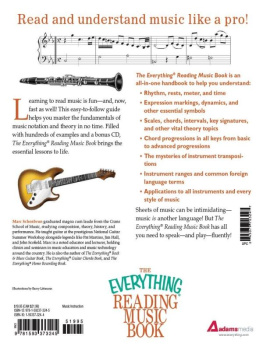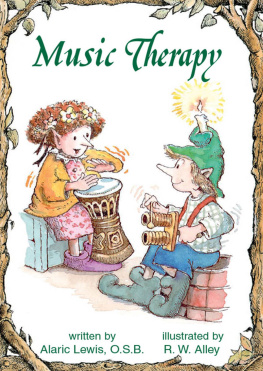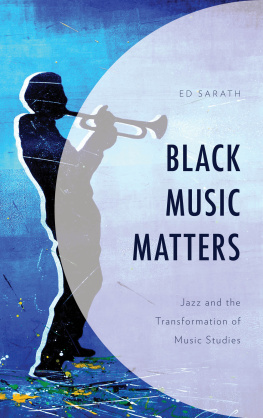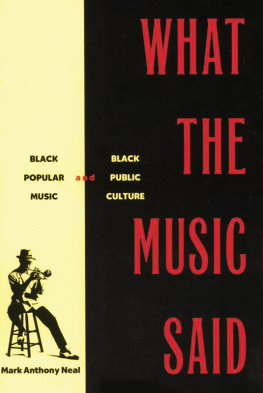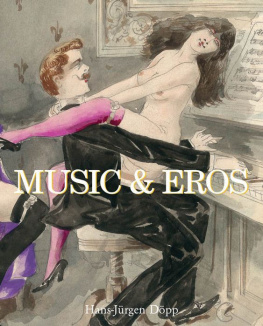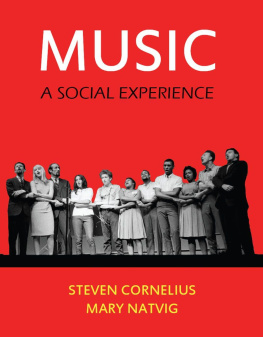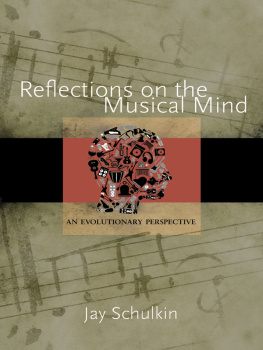Hesmondhalgh - Why Music Matters
Here you can read online Hesmondhalgh - Why Music Matters full text of the book (entire story) in english for free. Download pdf and epub, get meaning, cover and reviews about this ebook. City: Chichester;West Sussex;UK;Malden;MA;USA, year: 2014;2013, publisher: John Wiley & Sons, Inc., genre: Politics. Description of the work, (preface) as well as reviews are available. Best literature library LitArk.com created for fans of good reading and offers a wide selection of genres:
Romance novel
Science fiction
Adventure
Detective
Science
History
Home and family
Prose
Art
Politics
Computer
Non-fiction
Religion
Business
Children
Humor
Choose a favorite category and find really read worthwhile books. Enjoy immersion in the world of imagination, feel the emotions of the characters or learn something new for yourself, make an fascinating discovery.

- Book:Why Music Matters
- Author:
- Publisher:John Wiley & Sons, Inc.
- Genre:
- Year:2014;2013
- City:Chichester;West Sussex;UK;Malden;MA;USA
- Rating:4 / 5
- Favourites:Add to favourites
- Your mark:
- 80
- 1
- 2
- 3
- 4
- 5
Why Music Matters: summary, description and annotation
We offer to read an annotation, description, summary or preface (depends on what the author of the book "Why Music Matters" wrote himself). If you haven't found the necessary information about the book — write in the comments, we will try to find it.
Why Music Matters — read online for free the complete book (whole text) full work
Below is the text of the book, divided by pages. System saving the place of the last page read, allows you to conveniently read the book "Why Music Matters" online for free, without having to search again every time where you left off. Put a bookmark, and you can go to the page where you finished reading at any time.
Font size:
Interval:
Bookmark:
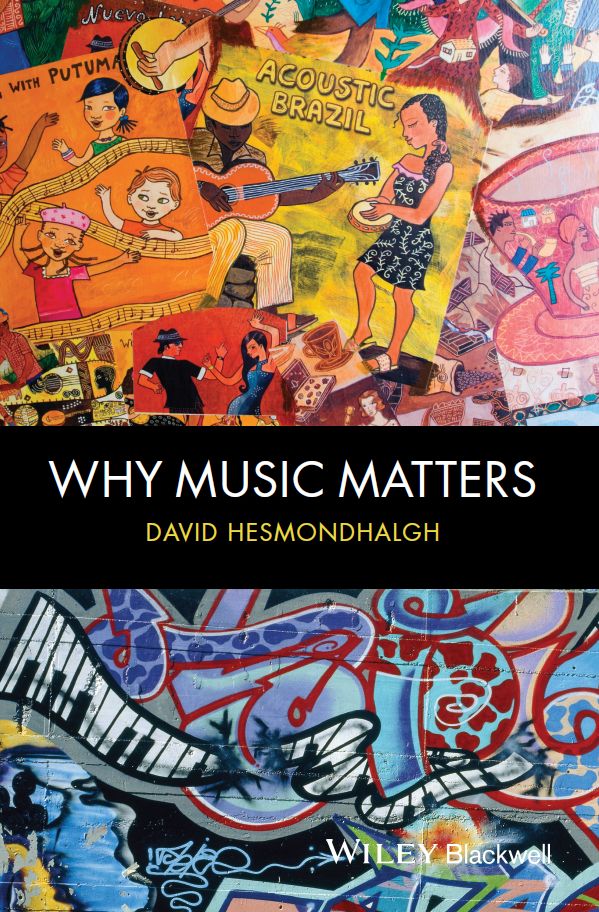

This edition first published 2013
2013 David Hesmondhalgh
Blackwell Publishing was acquired by John Wiley & Sons in February 2007. Blackwells publishing program has been merged with Wileys global Scientific, Technical, and Medical business to form Wiley-Blackwell.
Registered Office
John Wiley & Sons, Ltd, The Atrium, Southern Gate, Chichester, West Sussex, PO19 8SQ, UK
Editorial Offices
350 Main Street, Malden, MA 02148-5020, USA
9600 Garsington Road, Oxford, OX4 2DQ, UK
The Atrium, Southern Gate, Chichester, West Sussex, PO19 8SQ, UK
For details of our global editorial offices, for customer services, and for information about how to apply for permission to reuse the copyright material in this book please see our website at www.wiley.com/wiley-blackwell .
The right of David Hesmondhalgh to be identified as the author of this work has been asserted in accordance with the UK Copyright, Designs and Patents Act 1988.
All rights reserved. No part of this publication may be reproduced, stored in a retrieval system, or transmitted, in any form or by any means, electronic, mechanical, photocopying, recording or otherwise, except as permitted by the UK Copyright, Designs and Patents Act 1988, without the prior permission of the publisher.
Wiley also publishes its books in a variety of electronic formats. Some content that appears in print may not be available in electronic books.
Designations used by companies to distinguish their products are often claimed as trademarks. All brand names and product names used in this book are trade names, service marks, trademarks or registered trademarks of their respective owners. The publisher is not associated with any product or vendor mentioned in this book. This publication is designed to provide accurate and authoritative information in regard to the subject matter covered. It is sold on the understanding that the publisher is not engaged in rendering professional services. If professional advice or other expert assistance is required, the services of a competent professional should be sought.
Library of Congress Cataloging-in-Publication Data
Hesmondhalgh, David, author.
Why music matters / David Hesmondhalgh.
pages cm
Includes bibliographical references and index.
ISBN ISBN 978-1-4051-9241-5 (pbk. : alk. paper) ISBN 978-1-4051-9242-2 (cloth : alk. paper)
1. MusicSocial aspects. 2. MusicPhilosophy and aesthetics. I. Title.
ML3916.H47 2014
781.17dc23
2013006642
A catalogue record for this book is available from the British Library.
Cover image: Top image Atlantide Phototravel/Corbis. Bottom image Klaus Hackenberg/Corbis
Cover design by Simon Levy Design Associates
Music matters because it has the potential to enrich peoples lives, and enrich societies. But in what ways does it enrich them, why, and in what circumstances? Just as importantly, what constrains music from doing so? These questions, which I hope to address in this book, are big ones, and even they are only one aspect of a broader problem: the role of aesthetic experience in modern life. So my examination of the value of music draws upon wider debates about the value of art and culture in the modern world, and it also seeks to contribute to those discussions.
Music as an example of aesthetic experience raises further questions, concerning the specificity of music. What distinguishes musical practices and experiences from other artistic, cultural, and social practices? What is distinctive about music as a form of communication? These issues are addressed across the book as a whole, but in this introductory chapter I want briefly to give some indication of my particular approach to them, before outlining the essays that follow.
The fact that music matters so much to so many people may derive from two contrasting yet complementary dimensions of musical experience in modern societies. The first is that music often feels intensely and emotionally linked to the private self. As one writer has put it, music is a set of cultural practices that have come to be intricately bound up with the realm of the personal and the subjective (Martin, 1995: 2). This includes the way in which music provides a basis for intimate relations with others: a parent singing a child to sleep; three sisters expressing their feelings for a fourth by singing to her on her birthday; two lovers in bed hearing a song that they will forever associate with each other. The second is that music is often the basis of collective, public experiences, whether in live performance, mad dancing at a party, or simply by virtue of the fact that thousands and sometimes millions of people can come to know the same sounds and performers.
These private and public dimensions of musical experience may support and reinforce each other. Our excitement or sadness at hearing a song can be intensified through the sense that such emotions in response to a particular piece of music are shared by others, or even just that they might be shared. This feeling can be especially strong at a live performance, but it is just as possible when seeing someone perform on television or on YouTube. Listening to music through headphones as you wait for a bus, you might, however semi-consciously and fleetingly, imagine others a particular person, or untold thousands being able to share that response. That sense of sharedness is one of the pleasures of pop music, and many people are suspicious of it, perhaps because the feeling of community involved may seem to derive from sentimentality or even from a loss of individuality. But communal sentiment also derives from musics capacity for enhancing experiences of collectivity, and there are reasons to value that.
Music, then, represents a remarkable meeting point of intimate and social realms. It provides a basis of self-identity (this is who I am, this is who Im not) and collective identity (this is who we are, this is who were not), often in the same moment. All cultural products have this potential films, television programs, even shoes and cars. Yet musics seemingly special link to emotions and feelings makes it an especially powerful site for the bringing together of private and public experience.
This is where things start to get complicated. The relations between public and private realms have always been complex and contested. But in modern times, the private self has never been, in Eva Illouzs words, so publicly performed and [so] harnessed to the values of the economic and public spheres (2007: 4). It is no longer possible to sustain the idea that private spheres such as the home and family offer some kind of opposition to, or protection from, a world of public power, with the private understood as warm and intimate, and the public realm as a cold, rational, administrative domain. Of course, many people cope with the demands of their working lives by telling themselves that their private realm offers a haven in a heartless world (Lasch, 1977), and arguably a number of political interests encourage this privatization of peoples feelings of attachment and belonging (an argument made by, among others, Berlant, 1997). But in reality, those realms we think of as personal our inner selves internal conversations and relationships with families, lovers, and close friends are hugely affected by the world beyond them, and can be just as troubled as the workplace (see Hochschild, 1983). This may be more so now than ever before, as powerful commercial and state institutions in advanced industrial countries increasingly require autonomy, creativity, and emotional roundedness in their employees and citizens.
Next pageFont size:
Interval:
Bookmark:
Similar books «Why Music Matters»
Look at similar books to Why Music Matters. We have selected literature similar in name and meaning in the hope of providing readers with more options to find new, interesting, not yet read works.
Discussion, reviews of the book Why Music Matters and just readers' own opinions. Leave your comments, write what you think about the work, its meaning or the main characters. Specify what exactly you liked and what you didn't like, and why you think so.

